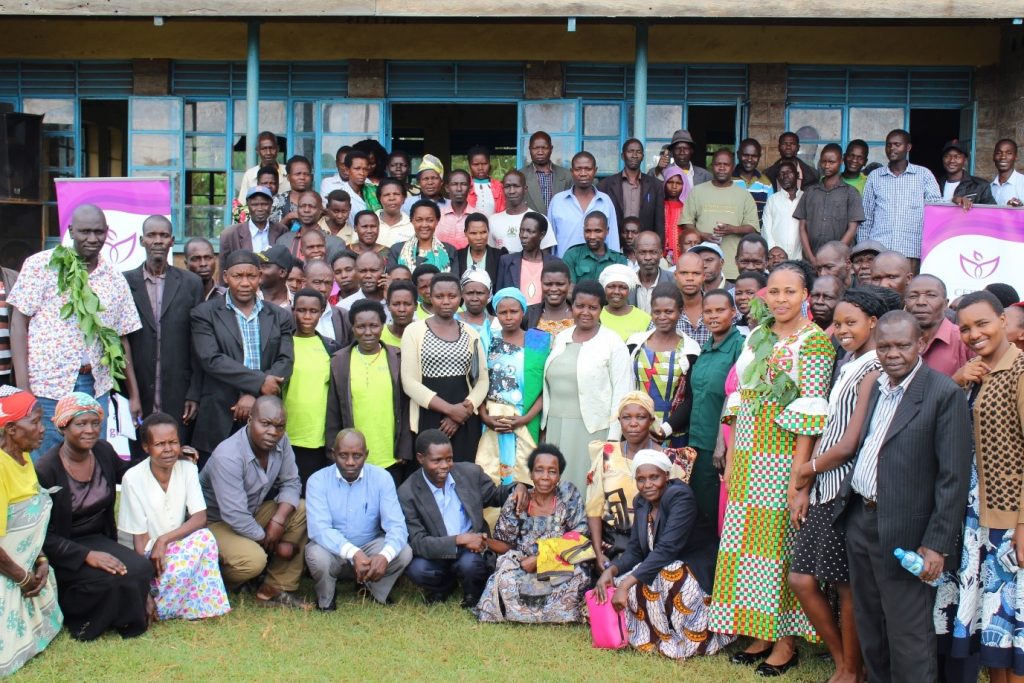CEWIGO conducted a National Consultative meeting on strategies for strengthening women’s leadership and participation in the scientific elections on 25th August 2020 at Imperial Royale Hotel, Kampala. The meeting was well attended by different stakeholders including representatives from like-minded CSOs, the Electoral Commission spokesperson, journalists, women candidates, women activists, CEWIGO Board members and staff. Among the key highlights of the day were the presentation of a position paper, panel discussion, and a press conference with selected participants.
CEWIGO in its position paper proposed the following recommendations:
- The Electoral Commission should engage with agencies like Uganda Communications Commission (UCC) and the Uganda Broadcasting Council to:
- Explore working relationship with media houses to secure subsidized airtime to sensitize the citizenry about the whole electoral process from the laws relating to elections, voting and the announcement of results; including the rights, fundamental freedoms and duties of citizens through EC should engage the mainstream media (radio, television, and print) in a variety of ways (jingles, interviews, photo opportunities) to raise public awareness.
- Uganda Communications Commission (UCC) and the Uganda Broadcasting Council to ensure that all candidates are given equal and cost-efficient broadcast airtime and lift the ban on megaphone community radios commonly known as ‘bizindalo’ to enable those with less financial muscle to access the electorate;
- The EC should work closely with UCC to come up with a recommended list of media houses to be used for campaigns, and SOPs on using media including television, radio, social media, digital or print media to increase awareness-raising for political activities.
- During active voter registration processes, and currently with regard to the constitution of electoral colleges, the electoral commission should collect and analyse gender-disaggregated data. If, during the process, there are significantly fewer registered voters of a certain gender, then community outreach should take place – in close consultation and coordination with health officials in order to ensure that voters are aware of registration and can safely access this process.
- Women particularly candidates are often targeted with online abuse and hate speech which discourages effective participation. With the internet and online channels likely playing a more visible role during the Covid-19 pandemic, election management officials and stakeholders should ensure that there are mechanisms in place to counter hate speech and gender-based online violence.
- As campaigns move online, women candidates, who are more likely to have less campaign experience and resources, should be provided with information and assistance on how to effectively campaign using online platforms and outreach. Leadership training and resources centres for women candidates become even more important in contexts where, due to crisis, voters may even be more reluctant to vote for women.
- The Women elected officials, especially at the local levels, can play a key role in advocating for women’s needs in the hybrid elections. Assistance should be provided to women elected officials on how to effectively advocate for the unique needs of their women constituents in relation to the pandemic.
- In all contexts, election management must take preventative, decisive measures to mitigate the health and safety risks for polling station workers and voters, and also keeping in mind women poll workers’ unique needs. This is especially important in contexts where the majority of poll workers are women. The Electoral Commission needs to make sure that personal protective equipment such as gloves and masks
- If the training for election officials is moving online, consideration should be given to the gender gap in access to the internet and technology. In many cases, women have less access to technology, so virtual training programs could exclude women.

